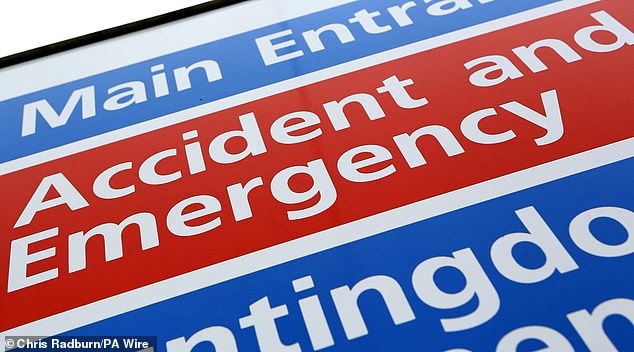Young people are far more likely than older generations to visit emergency rooms for non-urgent medical problems such as headaches, cuts and even acne, new data shows.
Nearly a quarter of 25- to 34-year-olds admitted to trying to get a doctor’s appointment for a self-treatable condition, according to research by consumer healthcare group PAGB.
Of the over 65 age group, only nine percent said they did the same.
Experts say this “worrying trend” may be the result of advice on social media or young people not asking older relatives for help.
About eight percent of respondents admitted to seeking hospital care for sprains or strains. Five percent said they had gone to the emergency room for acne.
Young people are much more likely than older generations to visit emergency rooms for non-urgent medical problems such as headaches, cuts and even acne, new data shows (file image)

Around eight per cent of respondents admitted to seeking hospital care for sprains or strains. Five per cent said they had gone to the emergency room for acne (File image)
PAGB chief executive Michelle Riddalls described the “automatic reliance” on doctors among the younger generation as “worrying”.
“In most cases, consumers would have received treatment and diagnosis much more quickly if they had sought advice from a pharmacist rather than going to the emergency room,” she said. “There is still work to be done to educate consumers about self-care.”
Self-treatable conditions are responsible for at least 25 million GP visits and five million trips to emergency rooms each year, according to analysts at Frontier Economics.
Better use of pharmacies and online healthcare could save the NHS at least £1.7bn a year in avoidable appointments and prescription costs.
Mark Burdon, a pharmacist and PAGB adviser, said younger adults’ reliance on primary care providers for health advice and treatment may be linked to their use of social media.
‘Young people see on social media the worst-case scenarios of not visiting a doctor for a cut or a urinary tract infection and they are worried that it could happen to them,’ she says.
“Information is not managed properly online. In the past, one would ask older relatives for advice, but TikTok seems to have replaced grandmother’s wisdom.”


